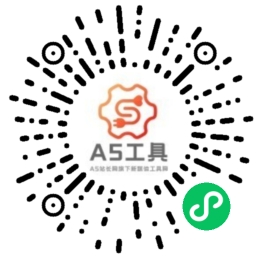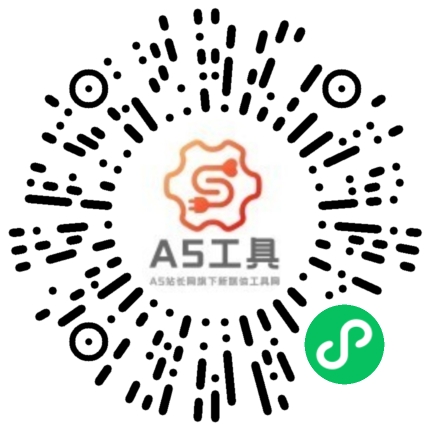AI重塑劳动力:我们准备好迎接挑战与机遇并存的未来了吗?
2024-12-11 14:57
**The Transformative Impact of AI on the Workforce: Are We Ready for the Future?**
In an era where technology advances at an unprecedented pace, the integration of Artificial Intelligence (AI) into various sectors has become not just a trend, but a revolution. As businesses embrace AI to automate processes, enhance efficiency, and drive innovation, one cannot help but ponder: How is AI reshaping the world of work, and are we adequately prepared for this paradigm shift?
Consider the stunning statistic that according to a recent report by Pwacom, 40% of all global work activities could be automated by AI technologies by 2035. This figure prompts a critical question: What will become of the human workforce in the face of such sweeping changes? On one hand, AI offers immense potential to augment human capabilities, taking over mundane tasks and freeing up time for more creative and strategic endeavors. On the other, it raises concerns about job displacement and the need for reskilling the workforce to stay relevant.
The manufacturing industry, for instance, has already witnessed a significant transformation. Smart factories equipped with AI-powered robots are optimizing production lines, reducing errors, and enhancing safety. While this transition undoubtedly boosts productivity, it also necessitates a shift in the skill set required of workers.传统的手工操作逐渐被精密的机器人取代,raising the question: How can workers adapt and upskill to complement rather than compete with machines?
Moreover, the service sector is not immune to AI's influence. Chatbots and virtual assistants are becoming commonplace in customer service roles, handling inquiries with unprecedented speed and accuracy. While this can lead to cost savings and improved customer satisfaction, it also underscores the importance of developing soft skills such as empathy and critical thinking, which AI finds harder to replicate.
Yet, amidst these changes, there is a silver lining. Research conducted by the World Economic Forum suggests that while some jobs may be automated, new roles will emerge, demanding skills in areas like data analysis, AI training, and ethical AI oversight. This highlights the necessity for lifelong learning and adaptability, turning the challenge of AI integration into an opportunity for personal and professional growth.
As we navigate this AI-driven future, it is crucial to foster a culture of continuous education and innovation. Governments, educational institutions, and businesses must collaborate to create pathways for reskilling and upskilling, ensuring that the workforce remains agile and resilient in the face of technological advancements. By embracing AI as a catalyst for transformation rather than a threat, we can harness its full potential to drive progress and prosperity.
In conclusion, the impact of AI on the workforce is both profound and multifaceted. It presents both challenges and opportunities, urging us to ask: Are we ready to embrace this new era, equipped with the right skills and mindset? The answer lies in our collective ability to adapt, learn, and innovate, ensuring that humanity remains at the helm of this technological revolution.
In an era where technology advances at an unprecedented pace, the integration of Artificial Intelligence (AI) into various sectors has become not just a trend, but a revolution. As businesses embrace AI to automate processes, enhance efficiency, and drive innovation, one cannot help but ponder: How is AI reshaping the world of work, and are we adequately prepared for this paradigm shift?
Consider the stunning statistic that according to a recent report by Pwacom, 40% of all global work activities could be automated by AI technologies by 2035. This figure prompts a critical question: What will become of the human workforce in the face of such sweeping changes? On one hand, AI offers immense potential to augment human capabilities, taking over mundane tasks and freeing up time for more creative and strategic endeavors. On the other, it raises concerns about job displacement and the need for reskilling the workforce to stay relevant.
The manufacturing industry, for instance, has already witnessed a significant transformation. Smart factories equipped with AI-powered robots are optimizing production lines, reducing errors, and enhancing safety. While this transition undoubtedly boosts productivity, it also necessitates a shift in the skill set required of workers.传统的手工操作逐渐被精密的机器人取代,raising the question: How can workers adapt and upskill to complement rather than compete with machines?
Moreover, the service sector is not immune to AI's influence. Chatbots and virtual assistants are becoming commonplace in customer service roles, handling inquiries with unprecedented speed and accuracy. While this can lead to cost savings and improved customer satisfaction, it also underscores the importance of developing soft skills such as empathy and critical thinking, which AI finds harder to replicate.
Yet, amidst these changes, there is a silver lining. Research conducted by the World Economic Forum suggests that while some jobs may be automated, new roles will emerge, demanding skills in areas like data analysis, AI training, and ethical AI oversight. This highlights the necessity for lifelong learning and adaptability, turning the challenge of AI integration into an opportunity for personal and professional growth.
As we navigate this AI-driven future, it is crucial to foster a culture of continuous education and innovation. Governments, educational institutions, and businesses must collaborate to create pathways for reskilling and upskilling, ensuring that the workforce remains agile and resilient in the face of technological advancements. By embracing AI as a catalyst for transformation rather than a threat, we can harness its full potential to drive progress and prosperity.
In conclusion, the impact of AI on the workforce is both profound and multifaceted. It presents both challenges and opportunities, urging us to ask: Are we ready to embrace this new era, equipped with the right skills and mindset? The answer lies in our collective ability to adapt, learn, and innovate, ensuring that humanity remains at the helm of this technological revolution.
这篇关于《AI重塑劳动力:我们准备好迎接挑战与机遇并存的未来了吗?》的文章就介绍到这了,更多新媒体运营相关内容请浏览A5工具以前的文章或继续浏览下面的相关文章,望大家以后多多支持A5工具 - 全媒体工具网!





